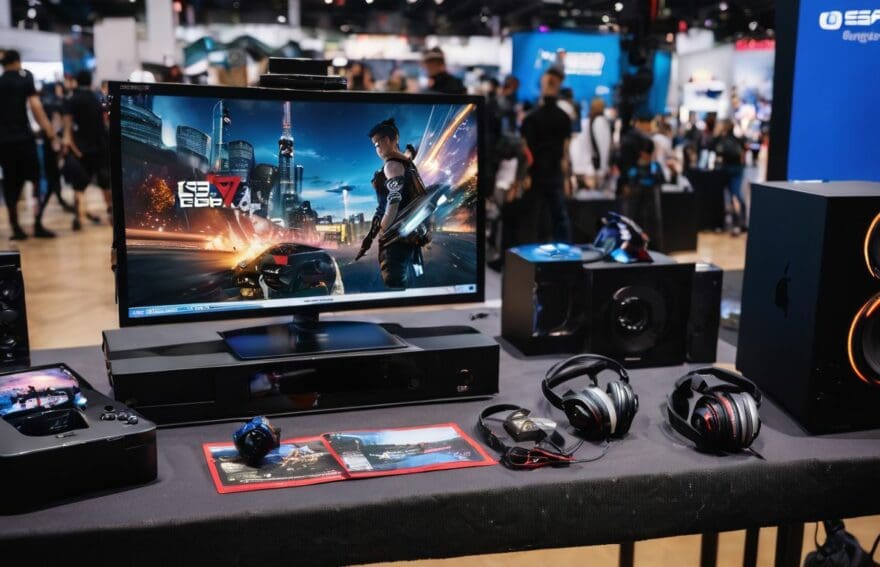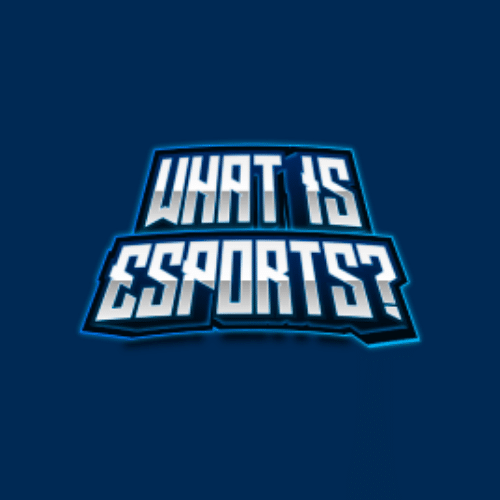The Business of Fighting Games: The FGC Economy

Updated On: November 29, 2025 by 
Stepping into the ever-lively arena of the Fighting Game Community (FGC) economy might seem like a daunting challenge, akin to facing down an expert opponent. Like many others before you, we’ve navigated these intricate dynamics, delving into the FGC’s storied past and vibrant current trends to unravel this unique marketplace powered by a global community’s passion.
Our gathered insights are ready to corner guide you through the ins and outs of gaming commerce within the FGC — from local grassroots skirmishes to grandiose esports showdowns. Stay tuned for strategic advice that could be just the ticket to boosting your industry savvy!
The History of the Fighting Game Community (FGC) Economy
The rise of Street Fighter II in the 1990s sparked a boom in the fighting game community, leading to tournaments, competitions, and a thriving gaming economy. However, by the mid-2000s, interest waned, and the FGC experienced a decline in popularity.
The rise of Street Fighter II
Street Fighter II turbo-charged the fighting game community when it hit arcades in the early ’90s. It wasn’t just another game; it became an overnight sensation, drawing players into competitive gaming like never before.
We witnessed something incredible as gamers queued up to test their skills against one another, feeding 10 pence pieces into machines and eagerly waiting for their next match.
Capcom’s masterpiece sparked a global phenomenon, transforming how we played and thought about fighting games. Now tournaments popped up everywhere, with players battling for glory and bragging rights.
Arcades buzzed with energy as colourful characters like Ryu and Chun-Li leapt from screens, becoming household names among us in the gaming community. This wasn’t just a boost for competitive gaming markets; Street Fighter II redefined gamer culture itself, setting standards that many games still strive to match today.
The decline of the FGC
Since the heyday of Street Fighter II, the FGC has experienced a noticeable decline. The COVID-19 pandemic caused numerous tournaments and live events to be cancelled, resulting in financial hardship for many community members.
Additionally, there have been concerns about lacklustre tournament payouts and economic challenges faced within the community. Despite these setbacks, the FGC is poised for growth in the near future.
The FGC economy has faced adversity due to decreased live events and tournament cancellations during the pandemic. This resulted in financial strain on both organisers and participants within the fighting game community.
The Business of Gaming in the FGC
The impact of E-Sports has revolutionised the fighting game community, creating opportunities for players to compete professionally and earn a living through gaming. Trickle-Down Economics in the FGC has also seen substantial growth as more gamers invest in the latest titles, equipment, and tournaments.
The impact of E-Sports
The e-sports industry has had a significant impact on the Fighting Game Community (FGC) economy, propelling it into a new era of growth and opportunity. With the rise of popular titles and the increasing accessibility of online play, competitive gaming has become more mainstream, attracting global attention and sponsorship.
The FGC’s strong community support and the success of e-sports tournaments have contributed to its resilience amidst economic challenges faced by other sectors within the industry.
As a result, the FGC is poised for continued expansion and success in the evolving landscape of competitive gaming.
Driving this momentum is not only an increase in game development but also partnerships with key players in the video game industry. This synergy has created opportunities for financial investments that are driving up tournament payouts while enhancing overall market trends for fighting games.
The FGC economy continues to thrive despite challenges, positioning itself as a valuable contributor to the wider e-sports community.
Trickle-Down Economics in the FGC
Trickle-down economics is a contentious issue within the FGC, but there’s widespread acknowledgment of the community’s global support. Despite economic challenges in other sectors of the esports industry, the FGC economy is thriving and poised for its best era.
The fighting game community has faced financial hurdles with tournament payouts, but it is entering a new golden age supported by factors such as production costs, availability of raw materials, and competitive strength.
Driven by grassroots foundations and bolstered by enthusiastic gamers worldwide, the FGC economy continues to flourish amidst this controversy. Next, let’s delve into factors that are driving success within the FGC Economy.
Driving the FGC Economy: Factors for Success
Strong community support and the rise of popular titles are key drivers for the success of the FGC economy. Accessibility through online play and the importance of sponsorship and partnerships also play a crucial role in shaping the future of competitive gaming.
Strong community support
The robust support from the global community plays a pivotal role in sustaining the FGC economy. The unwavering dedication and backing from fans, players, and organisers have been instrumental in cultivating a thriving environment for competitive gaming.
This widespread appreciation has contributed to the resilience and growth of the fighting game community, fostering a sense of solidarity that transcends geographical boundaries. The collective efforts to foster inclusivity and accessibility within the FGC have propelled its resurgence despite prevailing economic challenges.
Embracing grassroots initiatives allows aspiring gamers to participate actively in nurturing their local communities while contributing to the overarching success of the FGC economy.
Rise of popular titles
Following the solid foundation of strong community support, the rise of popular titles has significantly contributed to the growth of the FGC economy. Titles like Street Fighter II and Super Smash Bros have been pivotal in shaping the competitive gaming landscape, attracting a diverse player base and fostering a vibrant tournament scene.
The increasing popularity of games such as Tekken 7, Mortal Kombat 11, and Dragon Ball FighterZ continues to fuel this growth, drawing in both seasoned veterans and new enthusiasts alike.
As technology advances, game developers are capitalising on online play and accessibility, allowing players from all over the world to connect and compete at any time. This ease of access has broadened the reach of these popular titles beyond local arcade scenes or regional tournaments.
Online play and accessibility
Following the rise of popular titles, the accessibility of online play has become a game-changer in the FGC economy. With advancements in technology and infrastructure, fighting games have become more accessible than ever before.
Players can now engage in competitive matches from the comfort of their homes, connecting with a global community and sharpening their skills without geographical constraints. The ease of access to online play has opened up new avenues for competition and camaraderie within the FGC.
The improved accessibility also benefits novice gamers who are looking to delve into the world of competitive gaming. Online play provides a low-pressure environment for beginners to hone their abilities and learn from seasoned players across different regions.
Sponsorship and partnerships
The growth of the FGC economy has also been driven by strategic partnerships and sponsorship deals with gaming companies, esports organisations, and other brands looking to tap into the lucrative gaming market.
These collaborations have not only provided financial support for tournaments but have also raised the profile of fighting games within the broader esports ecosystem. By securing sponsorships from major brands and establishing strategic alliances with industry partners, the FGC has been able to expand its reach and attract a wider audience.
The result is increased visibility for fighting game tournaments and greater opportunities for gamers to showcase their skills on a global stage.
In addition, these partnerships have facilitated the development of new initiatives aimed at promoting diversity and inclusion within the competitive gaming community, as well as providing resources to support grassroots events and up-and-coming players.
The Resurgence of the FGC Economy
Impact of Street Fighter 6, Success of Evo under new management, Rollback netcode and its effect on online play, Upcoming game releases. To learn more about the exciting developments in the FGC economy, keep reading!
Impact of Street Fighter 6
Street Fighter 6 has created a significant buzz in the FGC community. Its release is highly anticipated, and it’s expected to have a substantial impact on the fighting game economy.
With its potential to draw in new players and rekindle interest from loyal fans, Street Fighter 6 could drive increased participation in tournaments, boost sales of related merchandise, and potentially attract more sponsorships for events.
The introduction of Street Fighter 6 is set to inject fresh energy into the FGC economy. The game’s success may also lead to an increase in esports activity within the community. This heightened engagement could have positive implications for both casual gamers and competitive players alike, further solidifying the FGC’s position as a vibrant sector within the wider gaming industry.
Success of Evo under new management
Evo, under new management, has flourished with its recent transition. The annual fighting game tournament has seen an increase in global participation and viewership. New partnerships and a revamp of the event structure have brought fresh energy to Evo.
The Evo’s success can be attributed to the implementation of innovative ideas and strategic collaborations that have revitalised the tournament experience for both players and spectators.
This revamped approach has sparked renewed interest in the FGC economy, providing a roadmap for sustainable growth within the community as a whole. With Evo leading the charge, we’re seeing promising developments that are set to shape the future landscape of fighting games on a global scale.
Rollback netcode and its effect on online play
Rollback netcode has revolutionised online play for the fighting game community (FGC), improving the overall gaming experience. This advancement allows for smoother and more responsive gameplay, reducing issues like lag and input delay.
As a result, players can now engage in competitive matches with greater precision and timing, enhancing their skills and enjoyment of the game. With improved online play, gamers have access to a larger pool of opponents from around the world, contributing to a more diverse and dynamic gaming environment.
The implementation of rollback netcode has led to increased participation in online tournaments within the FGC. Players are now able to compete against others without geographical limitations, fostering a stronger sense of community and camaraderie among enthusiasts.
Upcoming game releases
- Street Fighter 6: The upcoming release of Street Fighter 6 is poised to have a monumental impact on the FGC, with heightened expectations for its competitive scene and potential growth in esports tournaments.
- Guilty Gear Strive: As one of the most visually stunning fighting games in recent memory, Guilty Gear Strive’s release has sparked excitement among both casual and competitive gamers alike, with potential for increased community engagement.
- King of Fighters XV: With an established fan base and a legacy in competitive gaming, the release of King of Fighters XV is anticipated to reinvigorate interest in the franchise and contribute to the FGC’s ongoing resurgence.
- Tekken 8: Building on the success of its predecessors, Tekken 8’s forthcoming launch is expected to further elevate its position as a staple title within the FGC, driving player participation and tournament opportunities.
- Virtua Fighter 5 Ultimate Showdown: The re-release of Virtua Fighter 5 with enhanced features and improved online capabilities presents an exciting opportunity for both veteran players and newcomers to engage in competitive bouts within the FGC community.
- Dragon Ball FighterZ Season 4 Update: The continued support and expansion of Dragon Ball FighterZ through a new season update not only reinforces its presence in esports but also maintains its relevance as a major title within the FGC market.
- Mortal Kombat 12: As speculation builds around the next instalment in this renowned franchise, Mortal Kombat 12 holds promising potential to captivate audiences and contribute to the evolution of fighting games in esports.
- BlazBlue (Untitled): With whispers surrounding an upcoming addition to the BlazBlue series, fans are eagerly awaiting details on what could be a pivotal release for dedicated followers and newcomers being introduced into this beloved universe.
Conclusion: The Future of the FGC Economy
The FGC economy is set for a significant resurgence with the release of new gaming titles and advancements in online play. With strong community support and increased accessibility, the future looks promising.
Sponsorship and partnerships will continue to drive growth, cementing the FGC’s position within the esports industry. The FGC economy is on an upward trajectory, poised to enter its golden era despite past challenges.
FAQs
1. What is the FGC in esports?
The Fighting Game Community (FGC) is a segment of the esports community focused on competitive fighting games, often characterised by grassroots gaming events.
2. How does the FGC impact the gaming market?
The FGC influences video game market trends by promoting fighting games within esports, affecting both consumer interest and gaming business strategies.
3. Can someone analyse the business side of fighting games?
Yes, conducting a gaming market analysis can reveal important data about how fighting games perform financially within the broader video game industry.
4. Are there any new trends in the fight game economy?
The fight game economy frequently evolves as it responds to changes within esports communities and emerging preferences in gaming business models.


